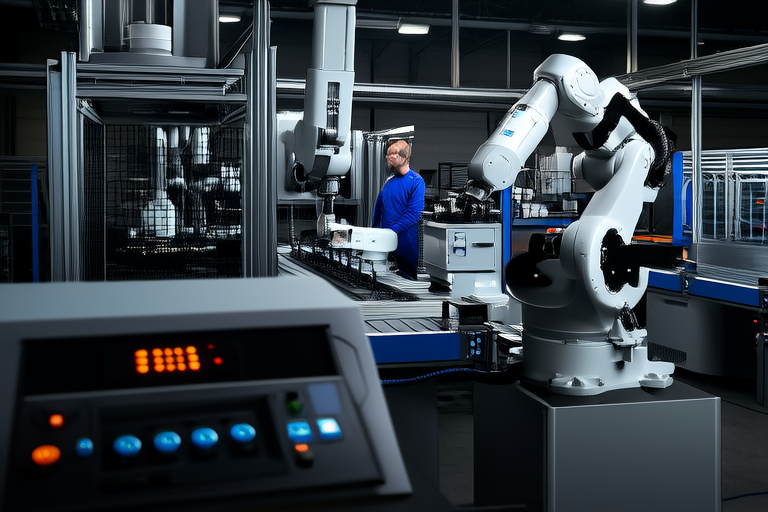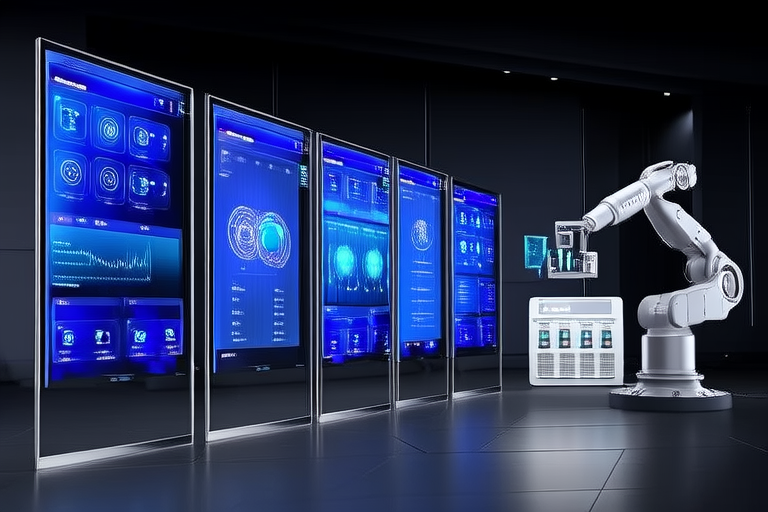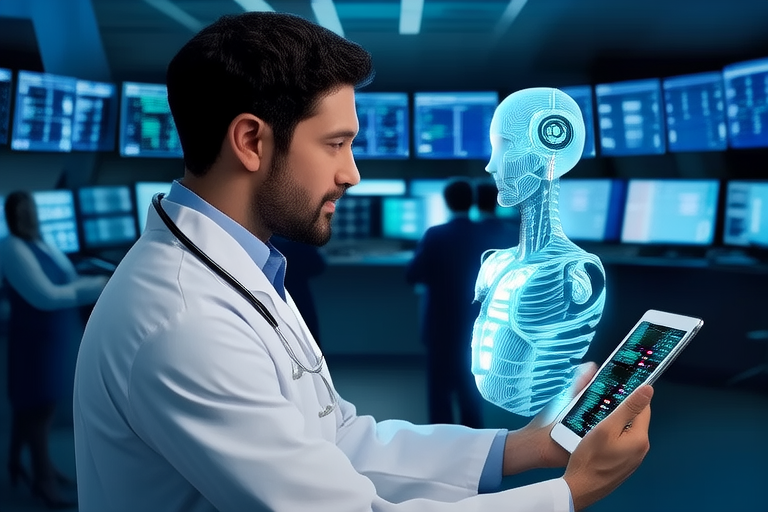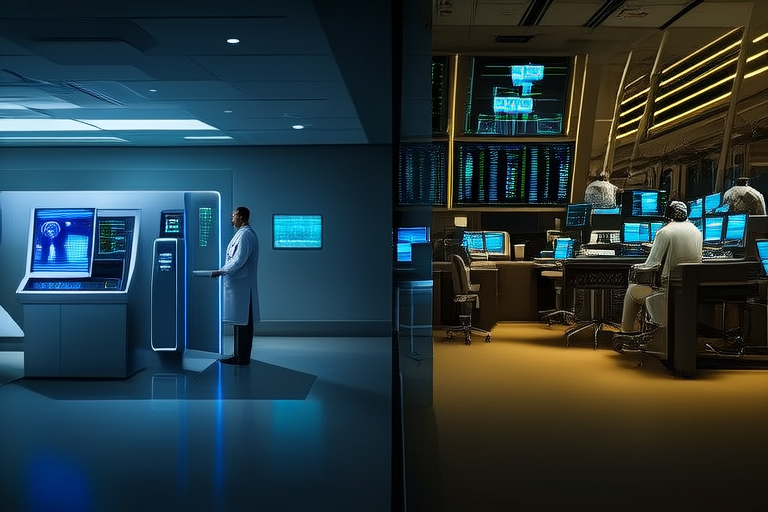“`html
The Future Is Now: Pioneering Applications of AI in Industry
Introduction
Artificial Intelligence (AI) has rapidly grown from a theoretical concept to a practical tool that is transforming industries across the globe. Once considered a distant possibility, AI is now an integral part of modern industrial processes, offering solutions to complex problems and driving innovation. This article explores the multifaceted applications of AI in various sectors, highlighting its transformative impact.
In this comprehensive guide, we will delve into the foundational concepts of AI, its historical development, and its current applications. We will also examine specific industries where AI is making significant strides, providing real-world examples and insights into the future of AI in industry.
Section 1: Overview of AI in Industry
At the heart of AI lies machine learning, deep learning, and neural networks—technologies that allow machines to learn from data, identify patterns, and make predictions. Machine learning involves algorithms that improve automatically through experience, while deep learning uses multi-layered neural networks to process vast amounts of data. These technologies enable AI to tackle complex problems in industry, from optimizing production lines to enhancing customer experiences.
The journey of AI in industry has been marked by significant milestones. From early rule-based systems to today’s advanced neural networks, AI has evolved to become more sophisticated and versatile. Its ability to analyze large datasets, predict outcomes, and automate tasks has made it indispensable in modern industrial settings.
Section 2: Manufacturing
AI is revolutionizing manufacturing processes, enabling companies to achieve higher levels of efficiency and precision. Predictive maintenance, for instance, uses AI algorithms to monitor equipment performance and predict when maintenance is needed, reducing downtime and extending the lifespan of machinery. Quality control systems powered by AI can detect defects in real-time, ensuring product quality and minimizing waste.
Supply chain optimization is another area where AI is making a significant impact. By analyzing data from suppliers, manufacturers, and distributors, AI can streamline logistics, reduce costs, and improve delivery times. Companies like Siemens and General Electric have successfully implemented AI in their manufacturing operations, leading to substantial improvements in productivity and profitability.
Section 3: Healthcare
AI is transforming healthcare by improving diagnostics, enabling personalized medicine, and enhancing patient care. AI-driven diagnostic tools can analyze medical images and patient data to provide accurate diagnoses, often faster than human experts. For example, AI algorithms have been used to detect early signs of diseases like cancer and Alzheimer’s, potentially saving lives.
In drug discovery, AI is accelerating the development of new treatments by identifying promising compounds and predicting their efficacy. Clinical trials are also being optimized through AI, which helps in selecting appropriate patients and monitoring trial progress. Companies like IBM Watson Health and Google DeepMind are at the forefront of AI in healthcare, demonstrating the potential for significant advancements.
Section 4: Finance
The financial sector is being reshaped by AI, with applications ranging from fraud detection to algorithmic trading. AI-powered fraud detection systems can analyze transaction patterns and flag suspicious activities in real-time, preventing financial losses. Algorithmic trading uses AI to execute trades based on market data, improving speed and accuracy. Risk management is another area where AI is making a difference, helping financial institutions assess and mitigate risks more effectively.
Customer service in finance is also being enhanced by AI through chatbots and virtual assistants. These tools provide instant support to customers, answering queries and resolving issues efficiently. Notable financial institutions like JPMorgan Chase and Goldman Sachs are leveraging AI to improve their operations and customer satisfaction.
Section 5: Retail and E-commerce
AI is playing a crucial role in retail and e-commerce, enhancing customer experiences, managing inventories, and refining marketing strategies. AI-powered recommendation systems analyze customer behavior and preferences to suggest products tailored to individual tastes, increasing sales and customer loyalty. Personalization tools help retailers create targeted marketing campaigns, boosting engagement and conversion rates.
Companies like Amazon and Alibaba have integrated AI into their retail operations, using it to optimize inventory management and improve supply chain efficiency. These innovations not only enhance the shopping experience but also drive business growth.
Section 6: Transportation and Logistics
AI is transforming transportation and logistics, with applications in autonomous vehicles, traffic management, and logistics optimization. Autonomous vehicles use AI to navigate roads safely and efficiently, reducing accidents and improving traffic flow. Traffic management systems powered by AI can predict congestion and suggest optimal routes, minimizing delays and fuel consumption.
Logistics optimization involves using AI to plan and execute efficient delivery routes, ensuring timely and cost-effective shipments. While the implementation of AI in this sector presents challenges, such as regulatory compliance and public acceptance, the benefits in terms of improved efficiency and reduced emissions are significant. Looking ahead, AI-driven transportation promises to revolutionize how goods and people move around the world.
Section 7: Energy and Sustainability
AI is contributing to energy efficiency and sustainability efforts, playing a vital role in smart grids, renewable energy forecasting, and waste reduction. Smart grids use AI to manage energy distribution more efficiently, reducing peak loads and minimizing waste. Renewable energy forecasting leverages AI to predict energy production from sources like wind and solar, ensuring reliable and sustainable energy supplies.
Waste reduction is another area where AI is making a difference, helping industries identify inefficiencies and implement measures to minimize waste. Initiatives like the European Union’s Horizon 2020 program are showcasing the potential of AI in environmental conservation, driving innovation and collaboration among stakeholders.
Conclusion
In conclusion, AI is transforming industries across the board, offering solutions to complex problems and driving innovation. From manufacturing and healthcare to finance, retail, transportation, and energy, AI is making a significant impact. As these technologies continue to evolve, they will undoubtedly play an even greater role in shaping the future of industry.
The transformative power of AI lies in its ability to analyze data, predict outcomes, and automate tasks, leading to increased efficiency, productivity, and sustainability. As we look to the future, it is clear that AI will remain a cornerstone of industrial progress, offering endless possibilities for improvement and growth.
“`




